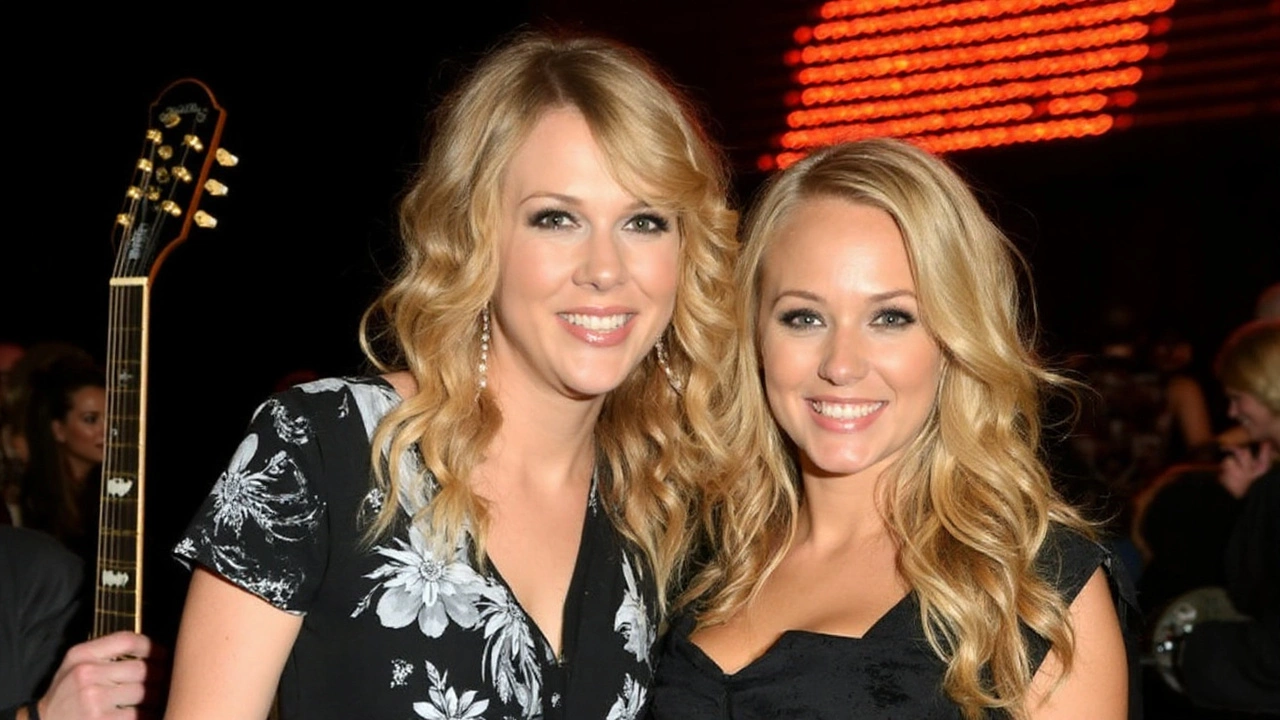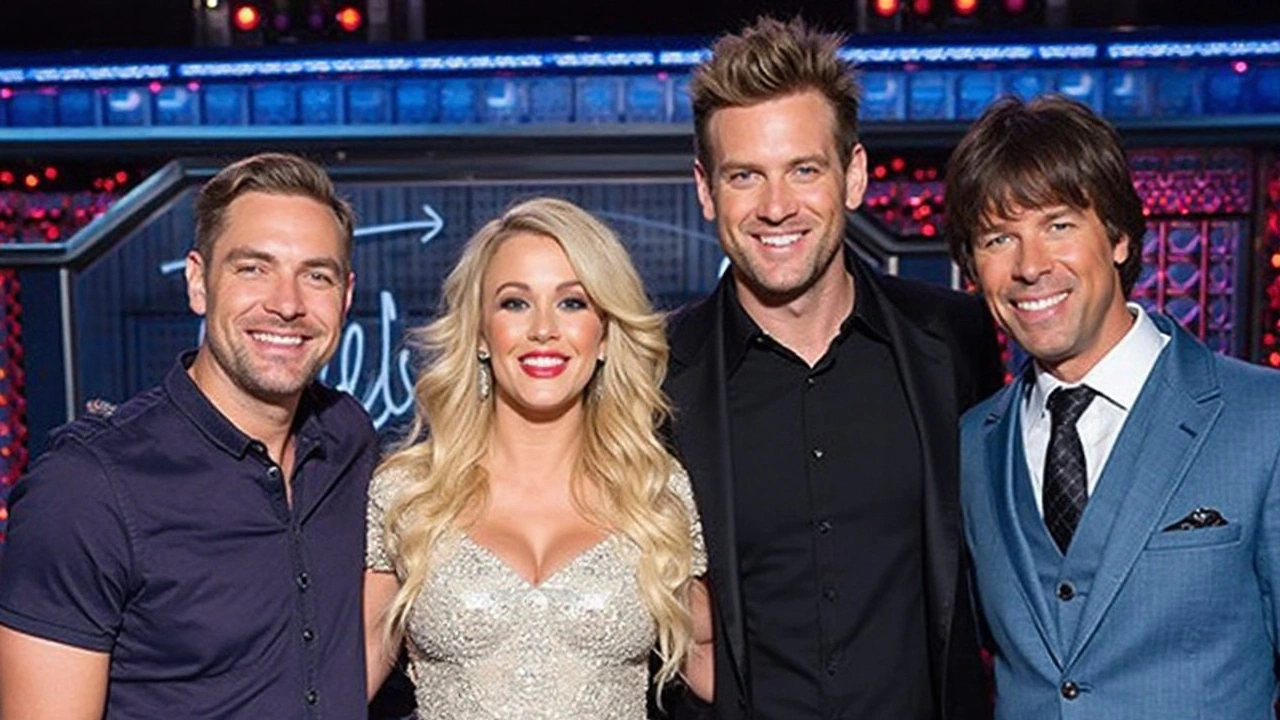The judges are set: Underwood, Bryan, Richie return for 2026
A former winner returning to rule the judge’s table—twice. That’s the headline for American Idol Season 24, with ABC confirming that Carrie Underwood will be back alongside Luke Bryan and Lionel Richie when the show returns in 2026.
The network rolled out the news with a cheeky video on August 25, 2025. Richie looked straight into the camera and teased, “The only thing that’s missing is you,” a wink to anyone thinking about stepping up to audition. The timing wasn’t random. Auditions opened the very next day, August 26, keeping the show’s engine running as it gears up for another national talent search.
The panel is unchanged from Season 23, a deliberate move. Bryan and Richie are entering their ninth year judging the ABC era of Idol, which launched in 2018 after the show’s original Fox run ended. Underwood is heading into her second season in the chair she took over from Katy Perry, who left in early 2024 to focus on new music and her album titled “143.” It’s a clean continuity play, and it gives the show a mix of veteran chemistry and fresh perspective.
Underwood’s return carries a special twist: she’s the first Idol champion to come back as a full-time judge, and now she’s doing it for a second season. Two decades removed from her 2005 win, she knows exactly how it feels to sing for a life-changing shot on live TV. That viewpoint mattered last spring, and it’s part of why fans asked for more. When she talks about arrangement choices or handling pressure backstage, contestants listen because she’s lived it.
Bryan, 49, has spoken openly about taking Idol one season at a time. “Idol is kind of a year-by-year, ‘Do we do it or not?’” he told the country-radio show Taste of Country Nights earlier this year. Even so, he sounded confident Underwood would stick, calling his prediction “highly favorable.” He got that one right. Bryan’s lane on the panel remains clear: a straight-shooting country star who can spot stage presence and steer a singer through song choice without smothering their style.
Richie brings the north star energy. He’s the legacy hitmaker with a velvet hand, the one who can tell a nervous 18-year-old how to take a breath and make a room feel small. His feedback tends to be about connecting—eye contact, phrasing, where to hold a note. With him and Bryan holding the fort since the ABC reboot began, Idol has leaned on a steady tone: encouraging, but not soft.
Season 23 ended in May 2025 with Jamal Roberts crowned the winner after a spring run that kept the format familiar: city auditions, Hollywood Week pressure-cooker, a showcase round, and then the weekly live shows. Roberts’ win put a bow on a season that tested the new trio’s dynamic. Viewers seemed to like it, especially the full-circle feel of Underwood sitting in judgment while cheering for contestants who grew up singing her songs.
Katy Perry’s exit after seven ABC seasons could have dented the show’s rhythm. Instead, the shift has been smoother than expected. Underwood doesn’t try to be Perry. She’s cooler in tone, more technical in her critiques, and she doesn’t chase viral moments. That change has subtly moved the center of the panel toward craft—tone, pitch choices, and how to survive theme nights—without losing the show’s warm core.
The timeline ahead looks familiar. With auditions open, producers are combing through online submissions and live callbacks to build the first wave of golden tickets. Expect the usual mix: teens with that raw, goosebump voice; bar-band lifers with grit; choir kids who can blend; and a few unpredictable left-fielders who make good TV. The age range skews young, but Idol still likes a story—people who have worked for years and finally step into the light.
Assuming the standard production rhythm, taping for early rounds typically stacks up before the holidays, with Hollywood Week and the showcase filmed in a tight window soon after. Then the live shows take over in spring 2026, when America starts voting and the stakes jump. That’s when this panel’s chemistry matters most. Judges need to push, but not overshadow; guide, but not steer into sameness. It’s a balance the trio found last season as they learned each other’s cadence.
Underwood’s presence resonates beyond nostalgia. She understands what it means to choose catalog songs that frame the voice and still sound current. She knows how to breathe through nerves. And she’s blunt about stamina—can you sing like that every week and not shred your instrument? These are the questions that separate a solid audition from someone who can survive the competition grind.
Bryan tends to zero in on crowd command. If a singer can’t sell it without pyro and camera tricks, he’ll call it out. He also tends to fight for contestants who are rough around the edges but believable, especially in country and roots lanes. Richie often closes the loop: he talks about identity, because a great voice without a point of view won’t last when the themes get weird and the live band turns up the heat.
The announcement video’s tone—light, inviting—matches the moment. The franchise is deep into its third decade, but it still knows how to recruit. “The only thing that’s missing is you” is more than a catchphrase. Idol wants singers who might think they’re not ready. The show has always found breakout voices in places that don’t look like industry pipelines.
For ABC, keeping the panel intact is a strategic call. Viewers build a relationship with judges as much as contestants, and the show’s family feel doesn’t work if the adults at the table keep changing. Stability lets producers tweak elsewhere—song clearances, theme nights, mentor choices—without the audience feeling whiplash. It also helps contestants. They study prior seasons and come in knowing how each judge listens.
There’s also the long game. Idol isn’t just a TV show; it’s a talent factory. When the judges elevate a singer, label interest follows. A season that prioritizes growth over gimmicks tends to produce finalists who can handle studio sessions, radio tours, and a first summer of live dates without burning out. The panel’s track record on ABC—helping build a run of finalists who can actually tour—matters to executives and fans alike.
If you’re reading this as a would-be contestant, here’s the practical part. Auditions are open now. Come with two songs that show contrast—one that proves control and one that shows range or edge. Bring a story, not a script. Judges can tell when a story is over-rehearsed. And pick arrangements you can repeat. If you need a miracle take to land a chorus, it’s the wrong key.
Season 24 will air in 2026, which lines up with the network’s spring staple schedule. Expect familiar beats: golden tickets that spark social chatter, a Hollywood Week that crushes a few favorites, and at least one sleeper who surges late. The difference this time is that the person handing out the toughest reality checks might be someone who once stood on the blue tape, praying for a shot she ended up seizing.
As for fan reaction, the early response online has leaned positive. Longtime viewers like the continuity and the idea that a former winner is helping shape the next one. The nostalgia hit is real, but the pitch here isn’t just sentimental. It’s practical. Underwood knows the path. Bryan and Richie know the pitfalls. Together, they give contestants three credible ways to survive the pressure—craft, connection, and crowd control.
Season 23’s champion Jamal Roberts now hands the baton to a new class. The message from the judges is simple: bring your voice, bring your story, and be ready to work. If the announcement felt like a friendly nudge, that’s by design. The door is open. The stage will be, too.

Why the panel continuity matters—and what to watch for
Judge turnover can change a show’s DNA. Idol has learned to avoid the churn. By sticking with the same trio, producers get consistent guidance for contestants and a steady tone for viewers. It also lets the show evolve without losing its heartbeat. Expect tighter mentoring segments, clearer feedback, and fewer detours into judge theatrics.
Watch for how Underwood shapes country and pop crossover contestants in particular. She’s lived that bridge and can spot when a singer is forcing a style. Bryan’s notes on stagecraft will be key in the live rounds, where song choice and pacing can save or sink a performance. Richie will keep hammering connection—lyrics mean nothing if the story doesn’t come through.
Also watch the audition edits. Idol’s best seasons avoid loading up on novelty acts and instead invest in a spread of believable contenders: gospel-leaning powerhouses, Americana storytellers, R&B stylists, pop belters who can dial it back for TV. If the early rounds focus on real talent instead of viral bait, the spring run tends to be stronger.
And yes, the show’s legacy hangs over all this. Idol was TV’s biggest machine once. Now it wins by being consistent and credible. This lineup does both. It’s familiar without feeling stale, and it centers the thing that still moves people at home: a great voice finding its shape in real time, under lights that never blink.
